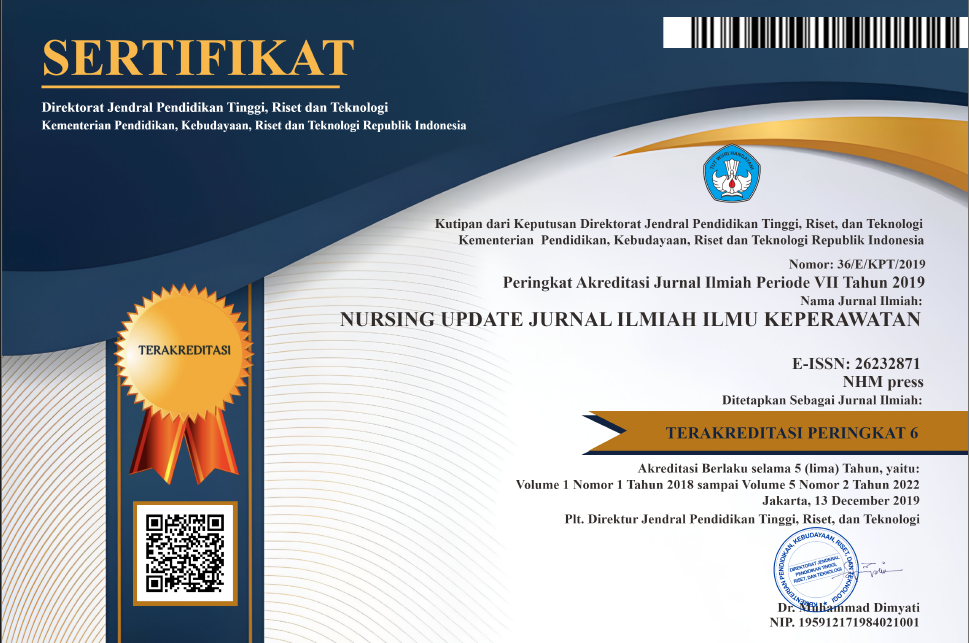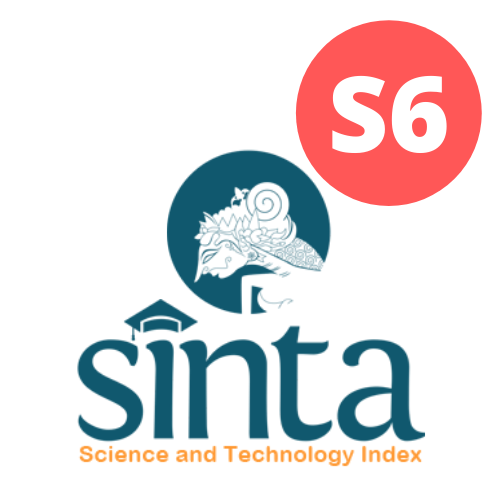THE RELATIONSHIP OF VICARIOUS EXPERIENCE AND VERBAL PERSUASION WITH THE SELF-EFFICACY OF PATIENTS RECOVERING COVID IN HEALTHY BEHAVIOR
Abstract
Background: The World Health Organization (WHO) declared COVID-19 to be a world health crisis because it spread very quickly. The number of confirmed positive cases continues to increase every day, but there is also a high recovery rate for Covid 19 cases. Prevention efforts are carried out to minimize the spread of the virus with healthy behavior. One very important factor in implementing healthy behavior is self-efficacy. Because of this, the factors that influence self-efficacy are vicarious experience and verbal persuasion. Objective: The aim of this research is to determine the relationship between vicarious experience and verbal persuasion and the self-efficacy of patients recovering from COVID-19 in healthy behavior. Method: This research is a quantitative study with a cross-sectional approach with a sample of 101 people obtained from purposive sampling. Data were analyzed using the Spearman Rho Correlation Test with a significance level of 5% (α = 0.05). Results: The results of the research show that vicarious experience with self-efficacy gets a p-value = 0.000 (p<0.05) and verbal persuasion with self-efficacy gets a p-value = 0.000 (p<0.05). Conclusion: It can be concluded that there is a relationship between vicarious experience and verbal persuasion with the self-efficacy of patients recovering from COVID-19 in healthy behavior.










